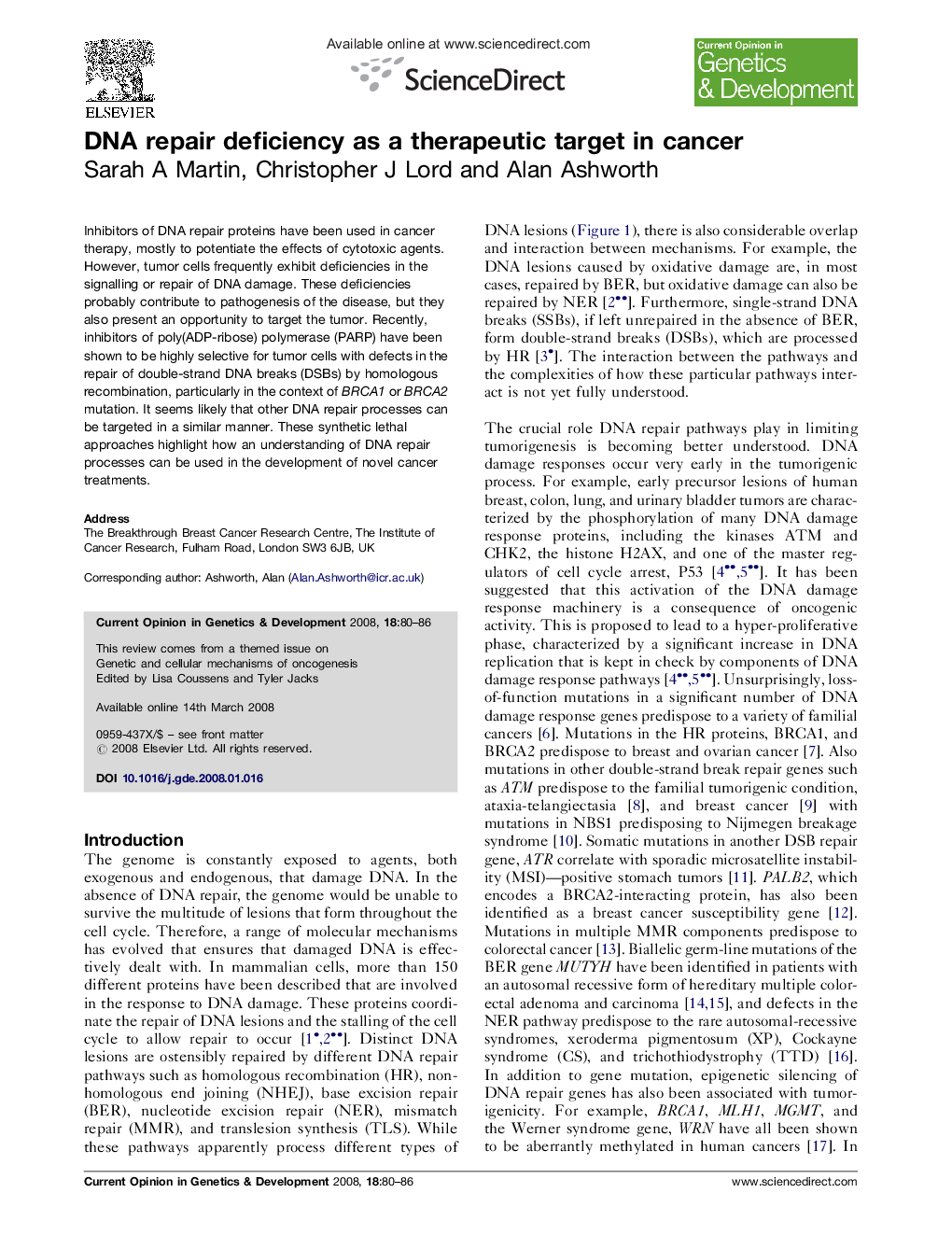| Article ID | Journal | Published Year | Pages | File Type |
|---|---|---|---|---|
| 2785134 | Current Opinion in Genetics & Development | 2008 | 7 Pages |
Inhibitors of DNA repair proteins have been used in cancer therapy, mostly to potentiate the effects of cytotoxic agents. However, tumor cells frequently exhibit deficiencies in the signalling or repair of DNA damage. These deficiencies probably contribute to pathogenesis of the disease, but they also present an opportunity to target the tumor. Recently, inhibitors of poly(ADP-ribose) polymerase (PARP) have been shown to be highly selective for tumor cells with defects in the repair of double-strand DNA breaks (DSBs) by homologous recombination, particularly in the context of BRCA1 or BRCA2 mutation. It seems likely that other DNA repair processes can be targeted in a similar manner. These synthetic lethal approaches highlight how an understanding of DNA repair processes can be used in the development of novel cancer treatments.
